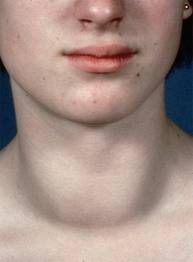Disorders
- Anorexia Nervosa
- Binge Eating Disorder
- Bitot's Spots
- Bulimia Nervosa
- Macrocytic Anemia
- Megaloblastic Anemia
- Night Blindness
- Peptic Ulcer
- Prophylaxis
- Rhodopsin
- Rickets Disease
- Scurvy Disease
- Wilson’s Disease
- Xerophthalmia
- Hemochromatosis
- Siderosis
- Thalassemia
- Sideroblastic Anemia
- Porphyria Cutanea Tarda
- Sickle Cell Anemia
- Kwashiorkor
- Menkes Disease
- Neutropenia
- Keratomalacia
- Beriberi
- Pellagra
- Macrocytic
- Megaloblastic
- Pernicious Anemia
- Scurvy
- Rickets
- Osteomalacia
- Abetalipoproteinemia
- Muscular Dystrophy
- Haemolytic Anaemia
- Cholestatic Constipation
- Pretibial Myxedema
- Cretinism Diesease
- Hypothyroidism
- Hypothyroidism
- Feline Hyperthyroidism
- Graves Disease
- Plummer’s Disease
- Thyrotoxicosis
- Acrodermatitis Enteropathica
- Congenital Hypothyroidism
- Hashimoto’s Thyroiditis
- Hyperthyroidism
- Keshan Disease
- Lose Weight with Hypothyroidism
- Metal Fume Fever
- Postpartum Thyroiditis
- Thyroid Storm
- Subclinical Hypothyroidism
Hashimoto’s Thyroiditis and Depression
What is Hashimoto's Thyroiditis?
Thyroiditis is inflammation of the thyroid gland which has many causes, however the most common cause is Hashimoto’s thyroiditis a chronic inflammatory disorder of the thyroid gland caused by abnormal antibodies in your blood and white blood cells which causes autoimmune destruction, hypothyroidism caused by absence of thyroid cells. Middle aged women are most commonly affected. Attacks on your immune system against the thyroid glands occur if your family has a history of thyroid diseases such as hypothyroidism.
What are the symptoms of Hashimoto's Thyroiditis?

You may experience the same type symptoms a person with hypothyroidism would experience which effect almost every aspect of your health, such as weight gain an inability to lose weight even with the loss of appetite, sensitivity to hot or cold, fatigue being warn out and tired most of the time, absent menses, infertility or low conception rate, decreased libido, anxiety, heart palpitations, edema which is swelling in the hands and feet, low levels of cholesterol and triglycerides, hypertension, depression, and enlarged thyroid glands. Some people may experience tenderness or pain in the neck area if a goiter is present it may affect being able to swallow, or breath, if the goiter (enlarged thyroid) is to bothersome affecting your activities of daily living such as having a thyroid attack causing your to have a panic attack in the middle of the night causing you to lose sleep which is also important to keep your nervous system in check, then the medication will help to shrink your neck mass, or surgery to remove your thyroid. Anti inflammatory medication can be purchased over the counter which doesn’t relieve the problem but does help with the swelling which in turn relieves some of your pain.
Diagnosis is of Hashimoto’s thyroiditis is made by finding high levels of antibodies in your blood, which work against your bodies natural thyroid proteins. Your doctor can make an accurate diagnosis by performing a thyroid biopsy by inserting a needle into your thyroid gland and some of your cells are removed and then smeared onto a glass slide which is then sent to the laboratory. A pathologist will see a lot of blood lymphocytes which indicate inflammatory reaction in the thyroid gland. If you’re a woman fifty and over you should ask your doctor to screen you with a TSH test, if high THS is found in your blood it is usually contributed to Hashimoto’s thyroiditis, an ultrasound can also be performed to check if the thyroid is enlarged. THS is secreted by your pituitary gland, the two main thyroid hormones or T4 and T3 which control most metabolism of almost all of your cells, 3 and 4 are the amount of iodine molecules in every thyroid molecule, once both hormones are released into your blood stream they help your body by converting calories and oxygen into calories.
Treatment of Hashimoto’s thyroiditis is named after the man who discovered the disease in nineteen twelve which is the most common form of hypothyroidism also known a lymphocytic thyroiditis, which involves taking thyroid hormone replacement thyroxine as soon as your are diagnosed, even if a second TSH test is performed and the results show normal thyroid function. Thyroid treatment for Hashimoto’s thyroiditis consists of shrinking thyroid glands by suppressing production of thyroid stimulating hormone by your pituitary gland. The treatment is used to prevent thyroid failure the medication treatment will be a life long side kick from the point of diagnosis on by making sure your hormone levels are low since the disease may progress over time, and preventing hypothyroid because once your thyroid has shrunk it will not function. The treatment also affects blood lymphocytes which cause thyroid damage. Your dosage will likely be the some what larger than if you were being treated for hypothyroidism because the extra dosage is effective in shrinking the thyroid glands. After your initial diagnosis and treatment you should still see your doctor at least once a year to check that your TSH levels are in check and that your dosage doesn’t need to be increased, and that your thyroid has remained in a regular state, if your thyroid increases in stead of decreasing it can be surgically removed.
Hope this article will provide you informaton about hashimoto’s thyroiditis.
